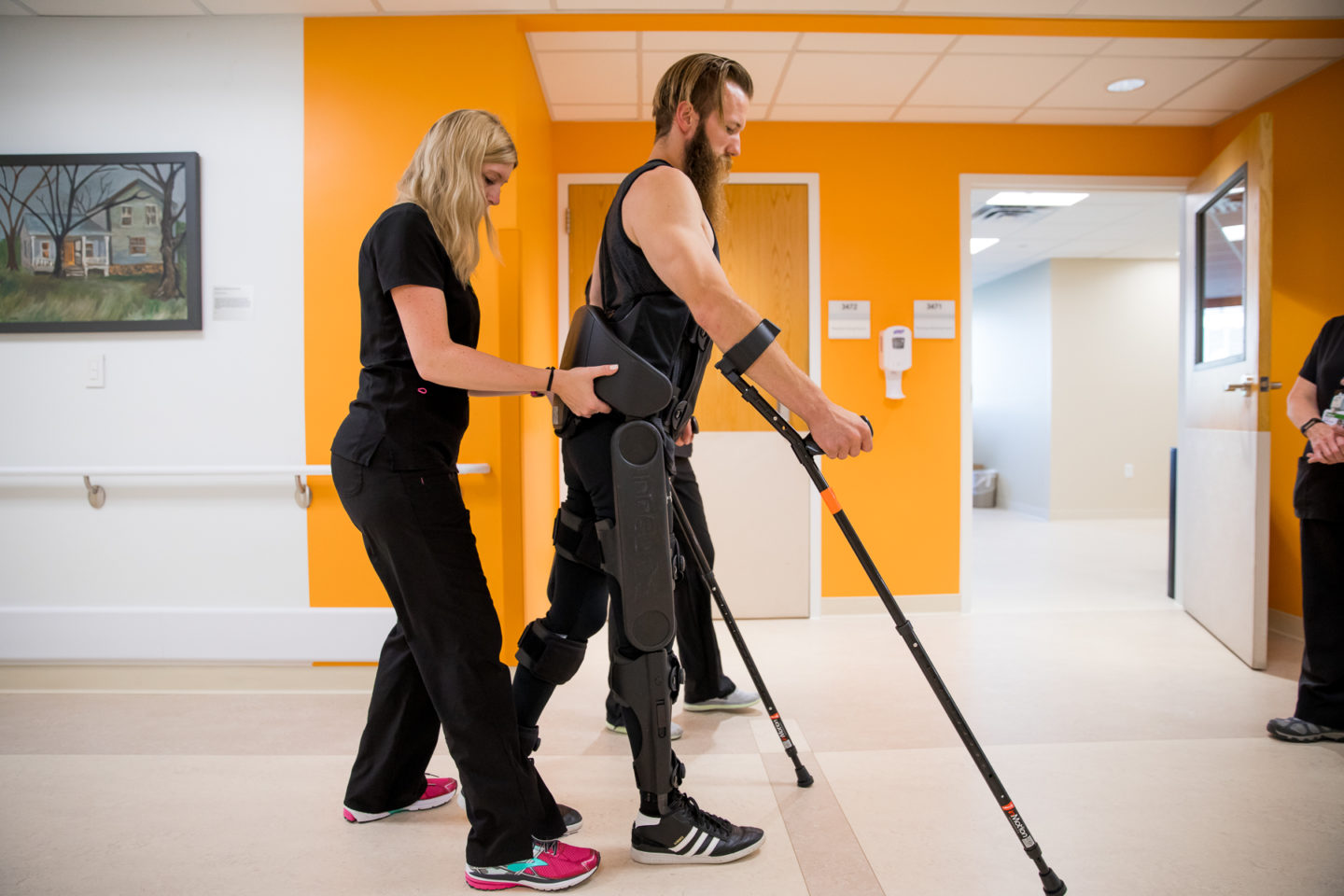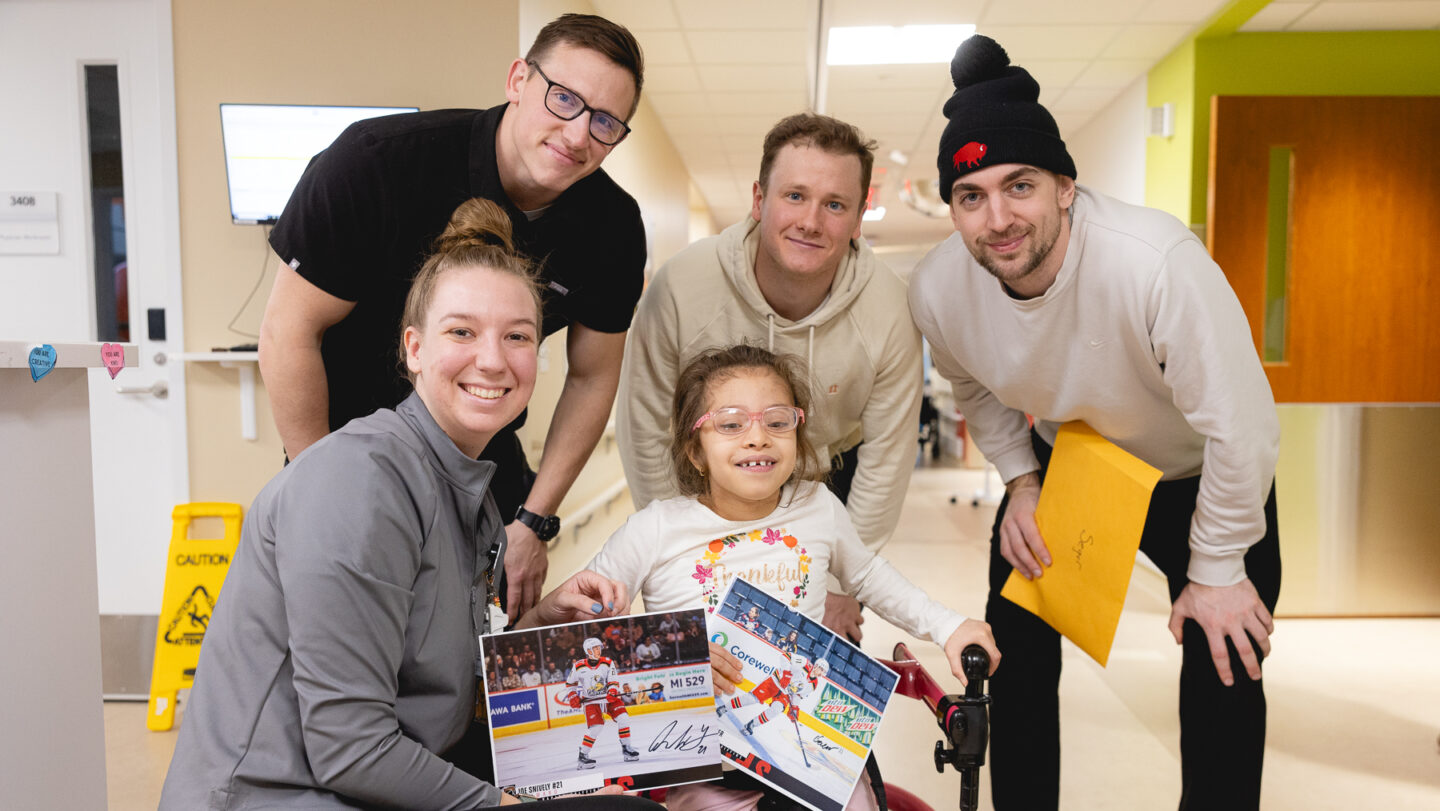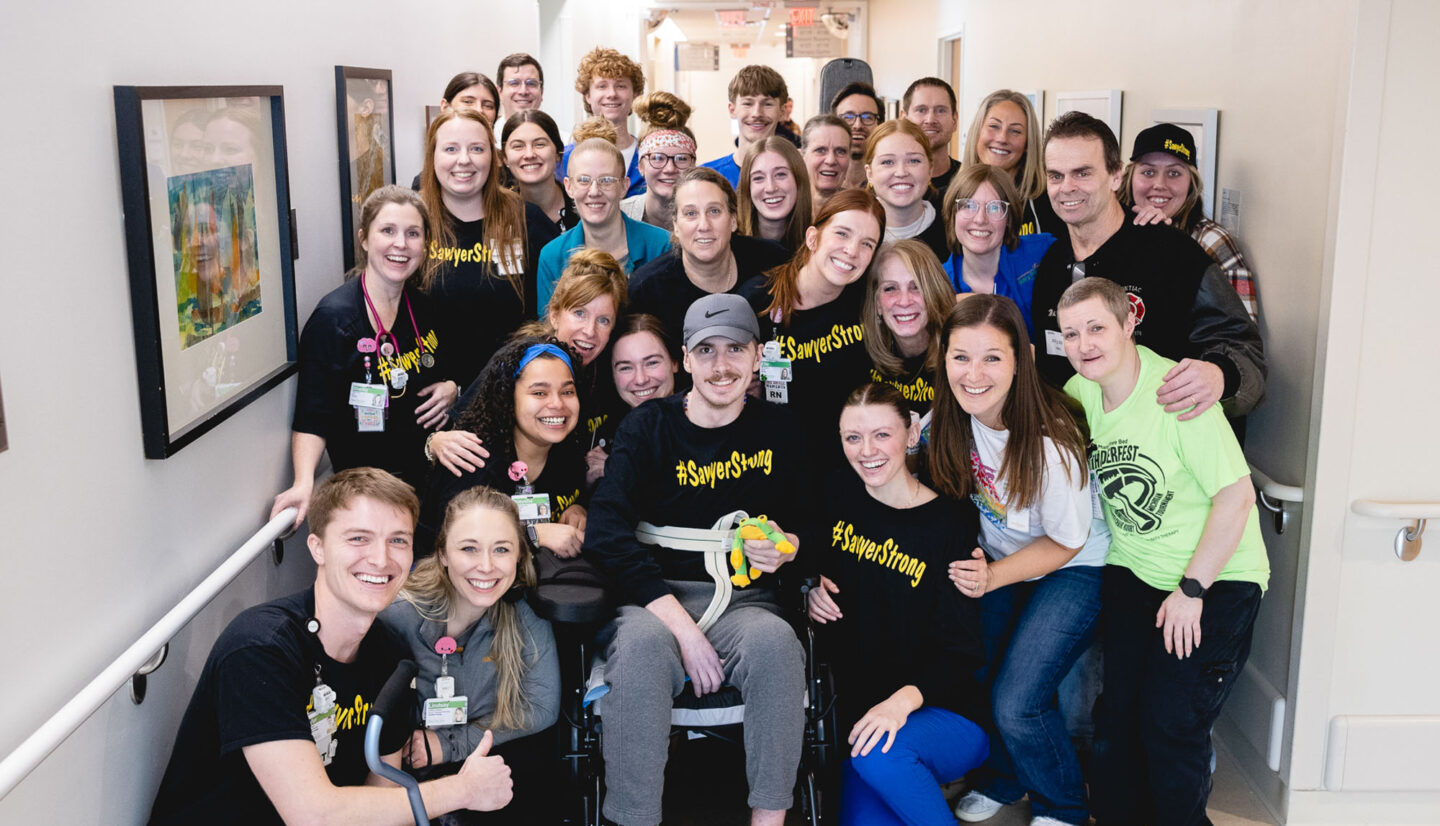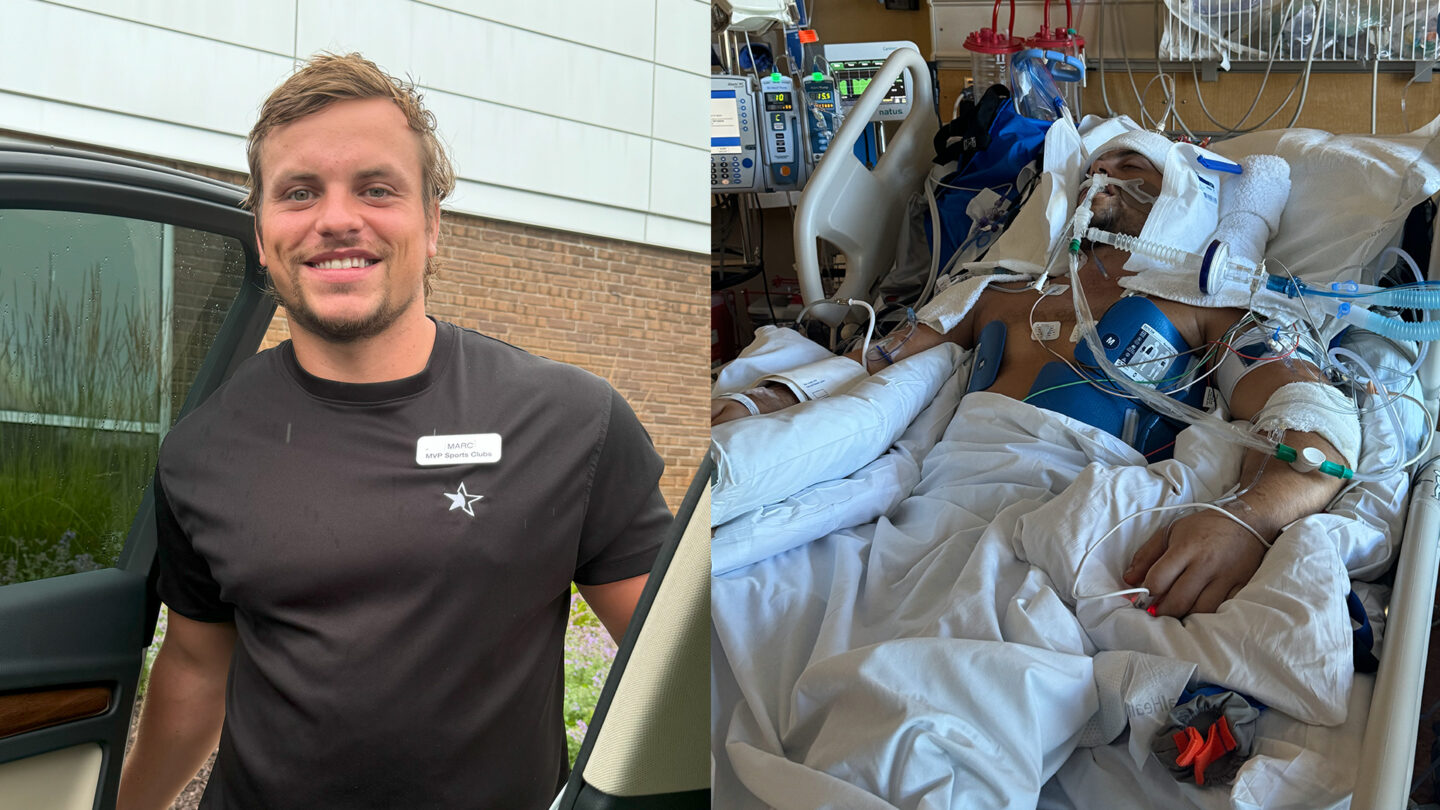Posted on December 17, 2017
Mary Free Bed first hospital in Michigan with robotic device that helps paralyzed patients walk
GRAND RAPIDS, Mich. — Mary Free Bed Rehabilitation Hospital is the first hospital in Michigan to provide treatment with the Indego® exoskeleton, a state-of-the-art robotic device that enables patients affected by spinal cord injuries to stand and walk.
“I love the way I feel when I’m walking in it,” said Brittany Yeomans, who was 21 when she sustained a spinal cord injury in a May 2013 accident. She spent four months as an inpatient at Mary Free Bed and continued therapy as an outpatient. She recently returned for outpatient therapy to use new equipment, including the Indego.
“I get to be upright, get my muscle memory working, do cardio and strengthen my core and arms while the machine is moving my legs,” Yeomans said. “It gives me hope – more hope than I already have – for the future. And what’s super cool is some days it seems so effortless and that I’m going to just walk away.”
Mary Free Bed, the fifth-largest rehabilitation hospital in the United States, invested $180,000 to acquire the Indego technology. Approved by the U.S. Food and Drug Administration for clinical use in rehabilitation settings, Mary Free Bed therapists are using the powered orthosis to treat patients recovering from spinal cord injury at the seventh cervical vertebra, near the base of the neck, and lower injury levels.
“The Indego complements Mary Free Bed’s existing rehabilitation technology to improve mobility and independence after spinal cord injury,” said physical therapist Kristy Simpson, a certified Indego specialist. “Exoskeleton technology is quickly evolving and becoming more widely available for patient use in the community. It is exciting for Mary Free Bed to be at the forefront of this endeavor.”
The Indego operates by sensing posture, mirroring natural human movement for task-specific gait training. Patients wear the 26-pound, battery-powered device around the waist and legs, leaning forward to stand or walk, or backward to stop or sit. The therapist uses an iOS app to wirelessly control the device’s operation as needed and to capture data to track progress.
Four physical therapists on Mary Free Bed’s Spinal Cord Injury Program team each completed 32 hours of training with Parker Hannifin to become certified specialists. In early 2018, they will complete eight additional hours of training that will allow them to train more staff to use the device.
In addition, the Indego recently received FDA clearance for personal use by people with T3 and lower injury levels for home and community use. People interested in purchasing it can contact Mary Free Bed to determine if they’re eligible for an evaluation with a certified Indego specialist and a subsequent trial period using the device.
Mary Free Bed treated nearly 300 patients in its Spinal Cord Injury inpatient programs during the 2017 fiscal year. The program is accredited as a Spinal Cord System of Care by the Commission on Accreditation of Rehabilitation Facilities International (CARF). This voluntary but rigorous accreditation process is based on specific and comprehensive standards ensuring the highest-quality rehabilitation for people with spinal cord injuries.
Mary Free Bed is a not-for-profit, nationally accredited, rehabilitation hospital in Grand Rapids, Mich. For more than 125 years, Mary Free Bed has restored hope and freedom through rehabilitation for children and adults who have experienced brain injuries, strokes, spinal cord injuries, multiple traumas, amputations, cancer and other diagnoses. The combination of 110-plus specialized medical and sports rehabilitation programs and an exclusive focus on rehabilitation enables our specialty physicians and staff to help patients achieve outstanding clinical results. For additional information, visit maryfreebed.com.
Media coverage:
MLive: Robotic device helps paralyzed Mary Free Bed patients walk
WOOD-TV: Robot exoskeleton gets patients back on their feet
Fox 17: Robotic device helps paralyzed patients walk
WZZM: Bluetooth technology is helping Mary Free Bed patients walk again






